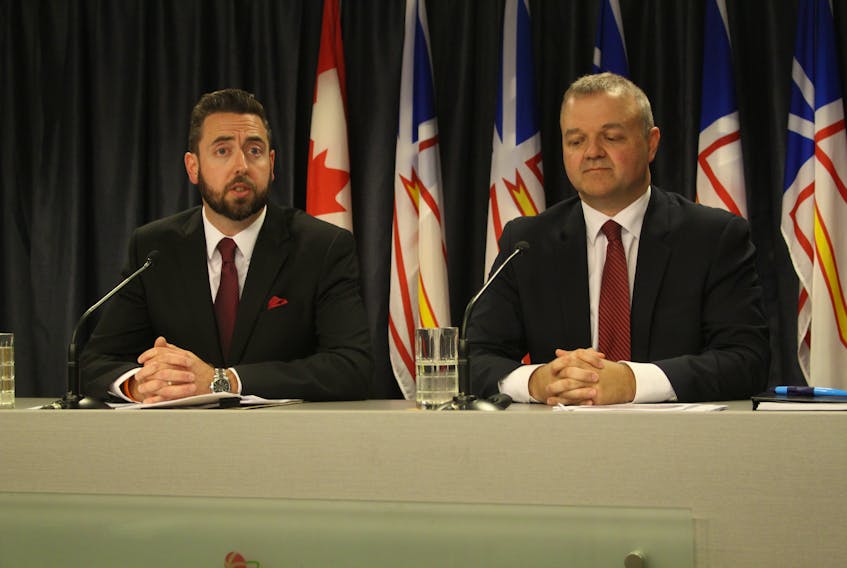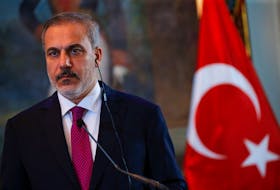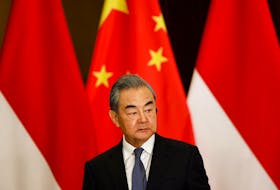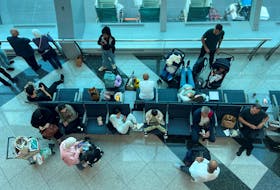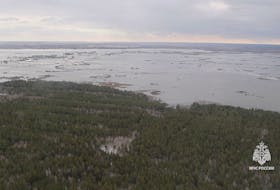It could be a long week in the House of Assembly, as opposition parties signalled Monday they won’t do any favours to rush through amendments to the province’s Elections Act.
The legislature convened Monday for an emergency session of the legislature, because in September Justice Gillian Butler struck down the section of the Elections Act which deals with special ballots, saying it is unconstitutional.
Government House Leader Andrew Parsons arrived Monday with a draft bill to amend the law and make it constitutional, but both the Tories and the NDP denied a request to dispense with procedural formalities and dive into debate right away.
The crux of the issue dates all the way back to the 2011 general election, when Tory Clyde Jackman won a narrow victory over New Democrat Julie Mitchell. The NDP took the matter to court, arguing that the special ballot provisions in the Elections Act are unconstitutional, and after a six-year slog in court, Butler agreed.
Unlike any other province in Canada, Newfoundland and Labrador voters could cast a special ballot up to four weeks before an election was formally called, which was deemed to give incumbent politicians some serious advantages.
Butler’s lengthy ruling tackled several other nitty gritty aspects of the law related to special balloting.
The Butler ruling is being appealed to the Court of Appeal by Elections NL, but in the meantime, the government needs to scramble to come up with a law that is constitutionally valid, because Mount Pearl North MHA Steve Kent recently resigned his seat to take another job, and the government imminently needs to call a byelection.
Parsons’ solution was to extend the minimum length of an election campaign from 21 days to 26 days, and instead of a maximum length of 30 days, there will now be no limit to how long an election campaign could be.
To get around Butler’s concerns about voters casting a ballot before election candidates have even been formally accredited by Elections NL, all candidates will now have to be accredited in the first five days of the election campaign, according to the proposed legislation.
But the Opposition worried that this sets up an opportunity for dirty tricks by the government — say, calling a snap general election weeks before anybody expected, and having all their candidates lined up while the other political parties are left scrambling to get candidates in place in just five days.
Opposition Leader Paul Davis said he would like to talk to Parsons and hammer out some changes to the proposed legislation.
“The best way to do it is for members of the House to sit down and have a discussion about it,” Davis said.
NDP interim-leader Lorraine Michael also has concerns with the tight timelines, and suggested changes should be made.
“What I would like to see is that we have 10 days up front. You’d have to add maybe five more days on at the end, so 31 days would be the minimum number of days of a campaign,” she said.
“What’s wrong with that? Our campaigns have been very short, in comparison to others in the country.”
On Monday, all that happened in the legislature was a formal notice by the government that it plans to introduce a new bill. On Tuesday, the bill can go to first reading.
That means the actual meat of debate might not start until Wednesday, when the bill goes to second reading, unless all parties give unanimous consent to hurry things up.

